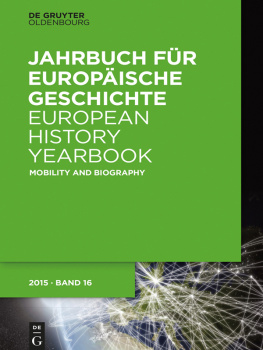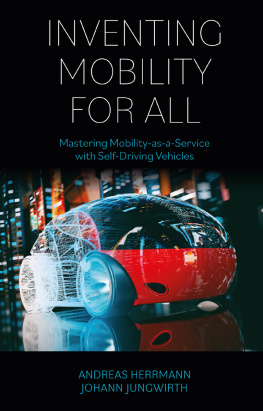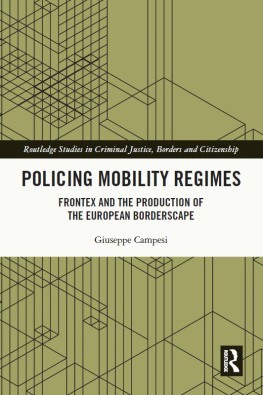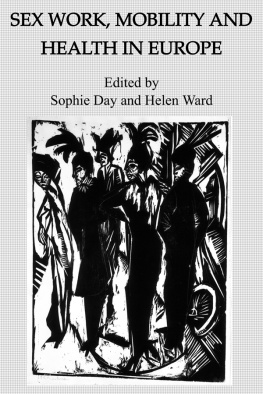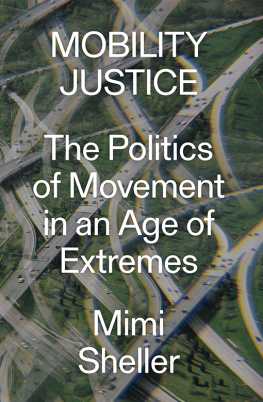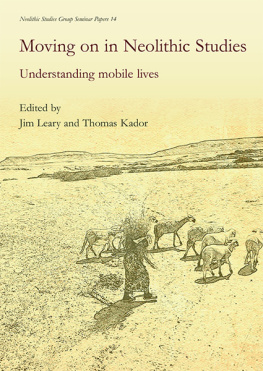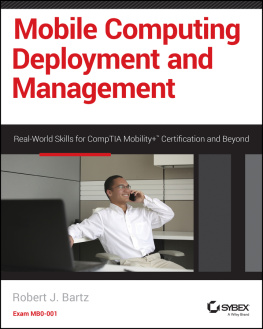
Mobility and Identity in Europe
This book demonstrates that mobility in Europe is not a synonym for European mobility, showing how certain mobile individuals are more likely to develop an explicitly European identity than others. Through a series of mobile ethnographic accounts with truck drivers, musicians and MEPs, the author lays out the complexities behind assumptions about mobility and European identity, providing a clear contrast between individuals for whom this process certainly is true and others who, in spite of their high levels of mobility, do not consider themselves European, or for whom the notion of being European is simply insignificant. Ultimately, as this book shows, the enactment of a European identity, through practices of mobility, has more to do with social class than with a mobile condition per se , with mobility in Europe being transformed into European mobility only when it empowers individuals, solidifying their elevated position in the social pyramid.
An account of European identity and its connection to mobility and notions of class, Mobility and Identity in Europe also explores the ways in which mobile ethnography can be practised as a method and what conclusions can be drawn from it. As such, it will appeal to scholars and students of sociology, anthropology and geography.
Andre Novoa is an ERC researcher of The Colour of Labour project, Institute of Social Sciences, University of Lisbon, Portugal.
Mobility and Identity in
Europe
A Mobile Ethnographic Approach
Andre Novoa
First published 2019
by Routledge
2 Park Square, Milton Park, Abingdon, Oxon OX14 4RN
and by Routledge
52 Vanderbilt Avenue, New York, NY 10017
Routledge is an imprint of the Taylor & Francis Group, an informa business
2019 Andre Novoa
The right of Andre Novoa to be identified as author of this work has been asserted by him in accordance with sections 77 and 78 of the Copyright, Designs and Patents Act 1988.
All rights reserved. No part of this book may be reprinted or reproduced or utilised in any form or by any electronic, mechanical, or other means, now known or hereafter invented, including photocopying and recording, or in any information storage or retrieval system, without permission in writing from the publishers.
Trademark notice : Product or corporate names may be trademarks or registered trademarks, and are used only for identification and explanation without intent to infringe.
British Library Cataloguing-in-Publication Data
A catalogue record for this book is available from the British Library
Library of Congress Cataloging-in-Publication Data
Names: Novoa, Andre, author.
Title: Mobility and identity in Europe : a mobile ethnographic approach /
Andre Novoa.
Description: 1 Edition. | New York : Routledge, 2019. | Includes bibliographical references and index.
Identifiers: LCCN 2018033557 (print) | LCCN 2018034960 (ebook) | ISBN 9781315278933 (ebk) | ISBN 9781315278926 (web pdf) | ISBN 9781315278919 (epub) | ISBN 9781315278902 (mobi/kindle) | ISBN 9781138242203 (hbk)
Subjects: LCSH: Migration, InternalEurope. | Social mobilityEurope. |
Population geographyEurope.
Classification: LCC HB2041 (ebook) | LCC HB2041 .N68 2019 (print) | DDC 304.8094dc23
LC record available at https://lccn.loc.gov/2018033557
ISBN: 978-1-138-24220-3 (hbk)
ISBN: 978-1-315-27893-3 (ebk)
Typeset in Times New Roman
by Swales & Willis Ltd, Exeter, Devon, UK
Mobility dreaming
It is a fascinating moment in which to have written this book. Britain is in the vertiginous position of leaving the EU, having triggered article 50. The countrys government is negotiating the terms of its Exit, which will see it leave in one year, and a two-year transition agreement to see it through to whatever customs, border and trade arrangements they are able to cobble together. The process, as it stands, feels botched, conducted by a fractured government under continuous ministerial reshuffle, party infighting, the consequences of which are almost entirely opaque out of view from both parliament and the public. The three million European citizens resident in the UK must feel very uncertain despite assurances from the government that their status will be protected. Andre Novoas book gives us much intellectual currency through which we might make sense of this most high-profile national rejection of Europe, but more broadly the waxing and waning of Europes mobile dream.
Indeed, Brexit is an interesting frame from which to consider Mobility and Identity in Europe too. The politicking from both sides of the referendum debate were incredibly one-sided and unbalanced. The leave campaigners, we might say, drew on a way of thinking about mobility that was social, meaningful and deeply felt and it was incredibly successful. The other campaigners, the remainers, tended to place remaining in the EU in an abstract and negative economic argument, no matter how many experts, notable public figures and even the international and illustrious, frankly men, were rolled out by Downing Street (former PM Cameron was behind remain) to intervene in the debate. For the remainers, it would be a catastrophe to leave; remaining, staying still, would be the safe option. For the Brexiteers, leaving would be a triumphal march towards independence. Therefore, one move was assertive, positive, quite masculine and marked by several highly masculine proponents the beer-swilling Farage, even the buffoonish Johnson. The other was a withdrawing, retreating, almost negative move, or at least it was an act of immobility. If both sides had consulted the now well-developed fields of mobility studies that inform so much of this book, they could have recognised the potency of these mobile meanings well in advance of the campaign.
The Brexit campaign had a lot to say about European (and beyond) mobilities, which harnessed the deep routed and rooted feelings associated with them. Many Britons have long found the presumption of freedom of movement a central European right and condition highly threatening. The ideal of Europe that Novoas book examines, was not present here. Rather, it was articulated in the figure and the movements of migrants, which were overloaded with all kinds of negative associations. Migration meant pressure on Britains services, especially the National Health Service. It meant downwards pressure on wages and jobs, undermined by cheaper European workforces commanding lower wages, willing to work longer hours. It meant cultural change and diversity that worried generations of families finding their familiar neighbourhood or town centre unfamiliar. It meant flows of capital and finance that tended to concentrate wealth on metropolitan centres in the South East of the country, and move it away from struggling and former industrial centres in the North East, South Wales, and the Midlands, towards financial services, or low-paid and flexible service sectors. Britains drawbridge, its borders, were seen as too porous and leaky. The commanding move of Brexit could also shore them up.
At its worst, membership of the EU became synonymous with figures of migration who were would-be thieves, the purveyors of sexual violence, and the tip of the iceberg of the international migration crisis following civil wars in North Africa and the Middle East, which have seen millions of migrants reach Europes shores. Europes ideals, Brexiteers warned, would bring a conveyor belt of terrorism and Islamic insurgency from the Middle East to Britain. Indeed, following the Brexit vote, the inauguration of Teresa May as Britains second female prime minister saw her identify a series of challenges, which included attending to the poor social mobility of the left behind and just managing families families who it seems were more likely to have voted for Brexit.


